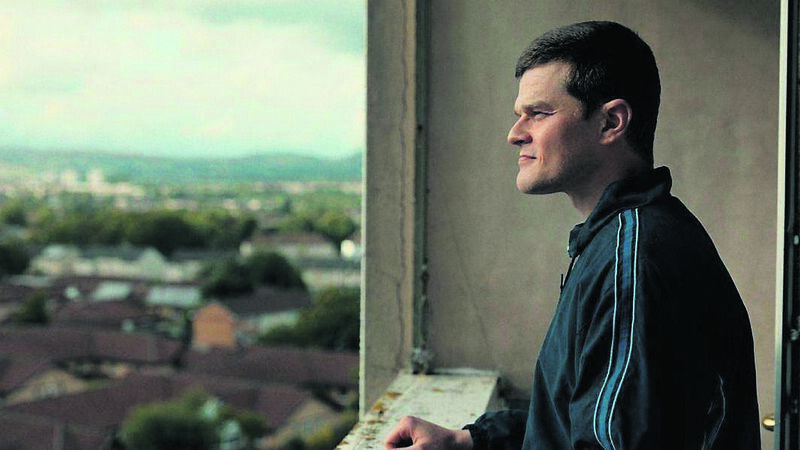Film Review: I Swear is both funny and insightful

Witnessing someone with tics can be a challenging experience. They might come across as rude or aggressive, but people with the syndrome can’t control their outbursts and don’t mean what they say.
John Davidson, a real-life Scottish man living with Tourette’s, had a rough start when his condition emerged. Today, he is one of the world’s leading activists for the syndrome, partly due to his dogged perseverance and sense of humour.
is a brilliant new underdog story that tells John’s extraordinary story.
The film opens in 2019 when John Davidson (Robert Aramayo) unceremoniously shouts “F**k the Queen” at a very royal ceremony. It sets the tone for a film that has plenty of humorous moments to balance the more challenging aspects of John’s life.
We then move to the 1980s to Galashiels, Scotland, where we meet 13-year-old John, played by Scott Ellis Watson. John is a bright, confident, and popular kid. He is the only boy in a family of daughters, so his father (Steven Cree) dotes on him.
John is a talented goalkeeper with potential for success, but when an agent comes to watch him play, John has a bad game. His tics, which he recently started experiencing, emerge when he plays.
The physical tics become more pronounced, both at school and at home, while the verbal tics often land him in serious trouble.
His strict mother, Heather (Shirley Henderson), struggles to cope with his foul language and new habit of spitting at the table. As a result, she forces him to eat facing the fireplace, turning his back to the rest of the family.
We jump forward to 1996, when John is in his twenties, and Robert Aramayo takes the character’s driving seat again. By this time, John has been diagnosed with Tourette’s Syndrome, but it hasn’t made life much better. His father left home, leaving his mum to deal with John’s condition, but she didn’t do a great job. She has spent years being harsh with John, keeping him from being independent, and encouraging him to take the only medical option available to him: antidepressants.
The drugs don’t stop the tics, but they do reduce them. They also make John tired and unable to fully engage with society - a chance meeting with an old school friend changes all that.
Murray (Francesco Piacentini-Smith) asks John to come home to his house for dinner, and John is instantly on edge. He has explained his Tourette’s, but Murray doesn’t seem too fussed and doesn’t seem to think his family will mind too much. He is right.
Murray’s mum, Dottie (Maxine Peake), was a mental health nurse and has seen it all. She isn’t horrified by John’s language and insists that he sit down, enjoy dinner, and not worry. Dinner doesn’t go too easily, but there is easy forgiveness, and Dottie assures John that he doesn’t need to keep apologising for something he can’t help.
It is one thing for John to get accustomed to engaging with the world, it is another thing entirely for society to become accustomed to him. He has run-ins with the police, faces aggression on the streets, but he also gets his first job thanks to the wonderfully understanding Tommy (Peter Mullan), who helps John see that society isn’t going to change until he teaches it how to.
All eyes will be on Aramayo, an actor who doesn’t have Tourette’s but spent months researching the condition and spending time with John and people in the Tourette’s community. His performance isn’t a caricature, but a remarkably accurate depiction of someone with the syndrome. The tics are a big part of his performance, but he also brings natural humour and a sweetness to the role. We might see his name during award season.
Watson, who plays young John, is terrific, particularly as the extent of the condition becomes apparent.
Moving, insightful, and full of humour, director Kirk Jones strikes the perfect balance between feel-good and social realism. You might cry, you will definitely laugh. I swear this one is worth your time.
, in cinemas, Oct 10, cert 15, ****







